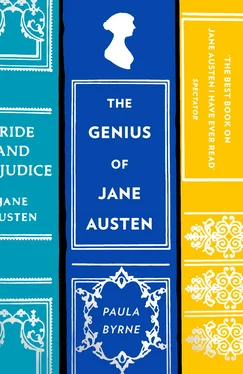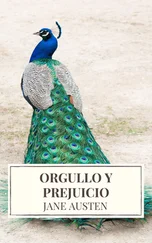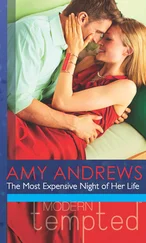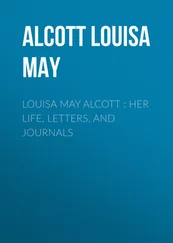Henry Austen’s patronage of minor playhouses such as the Pantheon and the Lyceum, as well as the legitimate patent houses, suggests his unflagging interest in the theatre. Like his sister, he had no compunction about supporting the minor theatres. Unlike his brother James, who lost interest in the theatre after he was ordained, Henry’s passion for the theatre carried on into maturity; and, whenever Jane and Cassandra were in town, he was to be found arranging seats at the various London theatres. Although there are few surviving letters to fill in the details of Jane’s activities at this time (the letters stop altogether from 26 July 1809 until 18 April 1811), she surely took advantage of Henry’s and Eliza’s hospitality as she did in the following years. Starting at the latter date, there is a sufficient amount of information to provide a fair estimate of her theatrical activities up to 28 November 1814, the last time she is known to have attended a theatre.
In order to be available for the proof-reading of Sense and Sensibility , she went to London in April 1811, staying with Henry and Eliza at their new home in Sloane Street. Shortly after her arrival she expressed a desire to see Shakespeare’s King John at Covent Garden. In the meantime, she sacrificed a trip to the Lyceum, nursing a cold at home, in the hope of recovering for the Saturday excursion to Covent Garden:
To night I might have been at the Play, Henry had kindly planned our going together to the Lyceum, but I have a cold which I should not like to make worse before Saturday … [Later on Saturday] Our first object to day was Henrietta St to consult with Henry, in consequence of a very unlucky change of the Play for this very night – Hamlet instead of King John – & we are to go on Monday to Macbeth, instead, but it is a disappointment to us both. ( Letters , pp. 180–81)
Her preference for King John over Hamlet may seem curious by modern standards, but can be explained by one of the intrinsic features of Georgian theatre: the orientation of the play towards the star actor in the lead role. Her disappointment in the ‘unlucky change’ of programme from ‘Hamlet instead of King John’ is accounted for in her next letter to Cassandra:
I have no chance of seeing Mrs Siddons. – She did act on Monday, but as Henry was told by the Boxkeeper that he did not think she would, the places, & all thought of it, were given up. I should particularly have liked seeing her in Constance, & could swear at her with little effort for disappointing me. ( Letters , p. 184)
It was not so much King John that Austen wanted to see as Siddons in one of her most celebrated roles: Queen Constance, the quintessential portrait of a tragic mother. In the words of her biographer and friend, Thomas Campbell, Siddons was ‘the imbodied image of maternal love and intrepidity; of wronged and righteous feeling; of proud grief and majestic desolation’. 6Siddons’s own remarks on this ‘life-exhausting’ role, and the ‘mental and physical’ difficulties arising from the requirements of playing Constance provide a striking testimony to her all-consuming passion and commitment to the part. Siddons records:
Whenever I was called upon to personate the character of Constance , I never, from the beginning of the play to the end of my part in it, once suffered my dressing-room door to be closed, in order that my attention might be constantly fixed on those distressing events which, by this means, I could plainly hear going on upon the stage, the terrible effects of which progress were to be represented by me. 7
Though her part was brief – she appeared in just two acts – Siddons’s impassioned interpretation was acclaimed. Constance’s famously eloquent speeches and frenzied lamentations for her dead boy were newly rendered by Siddons, for she didn’t ‘rant’ and produce the effects of noisy grief but was stunningly understated, showing grief ‘tempered and broken’, as Leigh Hunt put it. 8While admitting that King John was ‘not written with the utmost power of Shakespeare’, Hunt nevertheless viewed the play as a brilliant vehicle for Siddons’s consummate tragic powers. 9Her biographer, Thomas Campbell, also claimed that Siddons’s single-handedly resuscitated the play, winning over the public to ‘feel the tragedy worth seeing for the sake of Constance alone’. 10
Jane Austen certainly felt that ‘Constance’ was worth the price of a ticket. Though Henry Austen was misinformed by the box-keeper and Siddons had indeed appeared in Macbeth on Monday (22 April), Jane was less sorry to have missed her in Lady Macbeth than in Constance, which may imply that she had previously seen her in Macbeth . Sarah Siddons acted Lady Macbeth eight times and Constance five times that 1811–12 season, before retiring from the London stage, so perhaps Jane finally got her wish. 11
On Saturday (20 April) the party went instead to the Lyceum Theatre in the Strand, where the Drury Lane company had taken their patent after the fire in 1809. 12They saw a revival of Isaac Bickerstaffe’s The Hypocrite .
We did go to the play after all on Saturday, we went to the Lyceum, & saw the Hypocrite, an old play taken from Moliere’s Tartuffe , & were well entertained. Dowton & Mathews were the good actors. Mrs Edwin was the Heroine – & her performance is just what it used to be. ( Letters , p. 184)
In The Hypocrite , the roles of Maw-Worm, an ignorant zealot, and the religious and moral hypocrite Dr Cantwell were acted by the renowned comic actors Charles Mathews (1776–1835), and William Dowton (1764–1851), singled out by Jane Austen for praise. Dowton was famous for his roles as Dr Cantwell, Sir Oliver Premium and Sir Anthony Absolute. 13Leigh Hunt described his performance in the Hypocrite as ‘one of the few perfect pieces of acting on the stage’. 14
The great comic actor Charles Mathews was also a favourite of Hunt’s: ‘an actor of whom it is difficult to say whether his characters belong most to him or he to his characters’. 15Mathews was so tall and thin that he was nicknamed ‘Stick’; when his manager Tate Wilkinson first saw him he called him a ‘Maypole’, told him he was too tall for low comedy and quipped that ‘one hiss would blow him off the stage’. 16
Mathews himself described the success of The Hypocrite at the Lyceum, and recorded his experiment in adding an extra fanatical speech for Maw-Worm, thus breaking the rule of his ‘immortal instructor, who says “Let your clowns say no more than is set down for them”.’ His experiment worked, and the reviews were favourable: ‘It was an admirable representation of “Praise God Barebones”, an exact portraiture of one of those ignorant enthusiasts who lose sight of all good while they are vainly hunting after an ideal perfectibility.’ 17Jane Austen dearly loved a fool – in Pride and Prejudice she portrayed her own obsequious hypocrite and ignorant enthusiast, in Mr Collins and Mary Bennet.
Elizabeth Edwin (1771–1854), the wife of the actor John Edwin, performed the part of Charlotte, the archetypal witty heroine, for which she was famous. 18The Austen sisters were clearly familiar with Mrs Edwin’s acting style. She had played at Bath for many years, including the time that the Austens lived there, and she was also a favourite of the Southampton theatre, where the sisters may have seen her perform. 19
Elizabeth Edwin was one of many actors from the provinces who had begun her career as a child actor in a company of strolling players. She was the leading actress at Wargrave at the Earl of Barrymore’s private theatricals. 20She was often (unfairly) compared to the great Dora Jordan, whose equal she never was, though they played the same comic roles. Jane Austen’s ambiguous comment about Edwin suggests that she did not rate her as highly as Dowton and Mathews, whom she regarded as the ‘good actors’ in The Hypocrite . Oxberry’s 1826 memoir observed that although Edwin was ‘an accomplished artist … she has little, if any, genius – and is a decided mannerist’. 21She was an ‘artificial’ actress who betrayed the fact that she was performing:
Читать дальше












